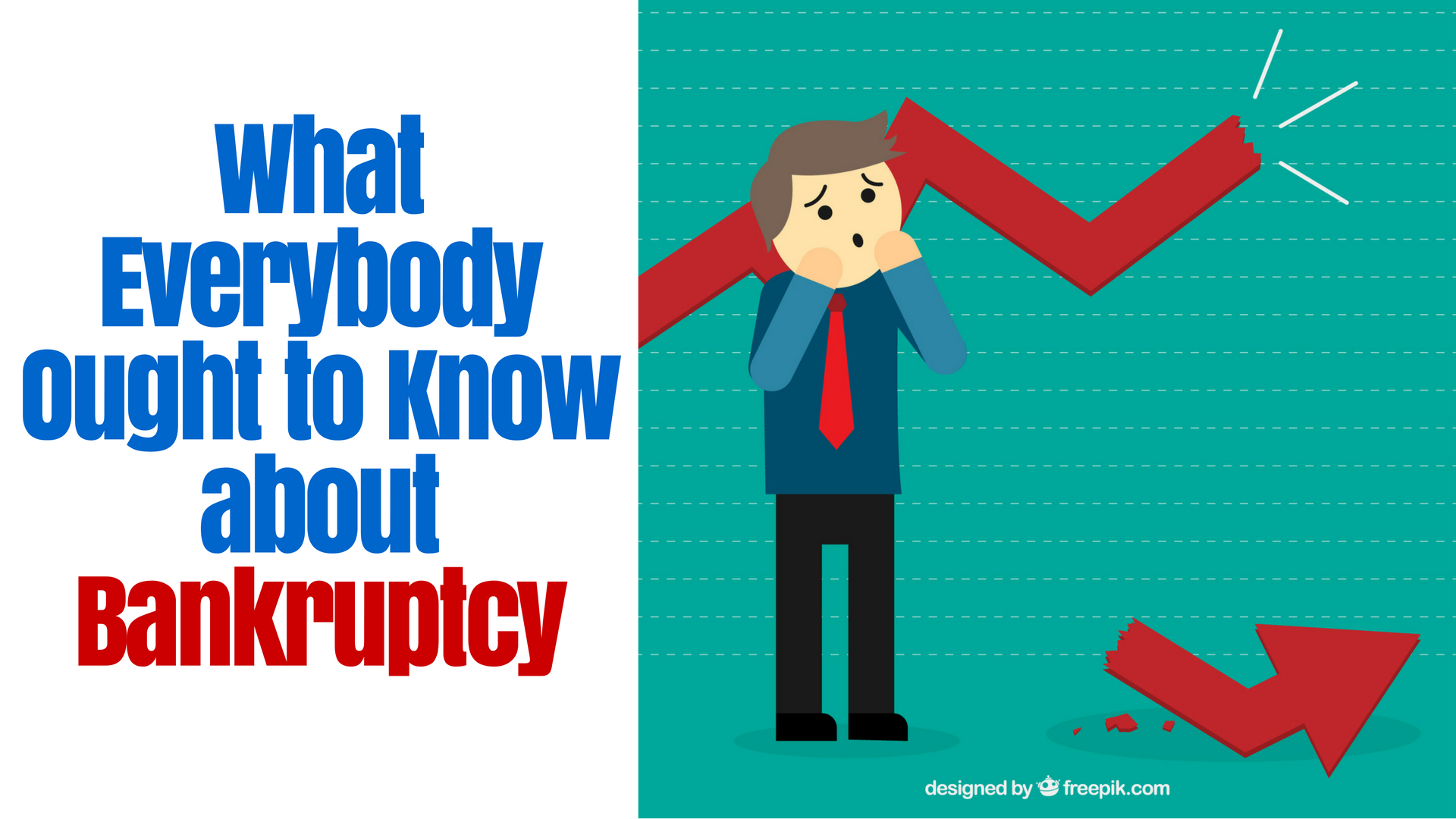What Everybody Ought to Know about Bankruptcy
by Geneva Padua
Hi everyone. My name is Adam Stewart, Debt Collection Expert and owner of Debt Recoveries Australia.
We get a lot of queries from debtors about bankruptcy.
Bankruptcy is a word everyone has heard of. But what does bankruptcy really mean and how does is affect the person filing it?
Geneva Padua, one of our top collectors, came up with a frequently-asked-questions about bankruptcy. We hope these handy answers would be of help.
1. What is Bankruptcy?
Bankruptcy is a condition of financial failure caused by not having the money that you need to pay your debts.
2. Does bankruptcy apply only to individuals or companies or both?
The Bankruptcy Act 1966 (Commonwealth) is the legislation that governs bankruptcy in Australia. Only individuals can become bankrupt; insolvent companies go into liquidation or administration.
3. How can an individual file for Bankruptcy?
A person or debtor can declare himself or herself bankrupt by lodging a debtor’s petition with the Official Receiver, which is the Australian Financial Security Authority (AFSA). This is called a debtor’s petition.
A person can also be made bankrupt after a creditor’s petition results in the making of a sequestration order in the Federal Magistrates Court. This is called a sequestrian order.
4. Is there a minimum threshold for filing Bankruptcy?
There is no threshold to lodge a debtor’s petition for bankruptcy. In order for a creditors petition to be lodged, a minimum debt of $5,000 is required.
5. What are the types of Bankruptcy, if any?
There are 3 parts of the act under which the great majority of “acts of bankruptcy” fall.
• Full Bankruptcy (Part IV) – as the word imply, it relates to full bankruptcy
• Debt Agreements (Part IX)
• Personal Insolvency Agreements (Part X)
The Agreements for the last 2 parts (Part IX and Part X) refers specifically to arrangements between creditors and debtors.
6. Who will govern the bankrupt’s financial affairs?
A Bankruptcy Trustee (in most cases this is the Official Receiver) is appointed to deal with all matters regarding the administration of the bankrupt estate. The Trustee’s job includes notifying creditors of the estate and dealing with creditor inquiries; ensuring that the bankrupt complies with his or her obligations under the Bankruptcy Act; investigating the bankrupt’s financial affairs; realising funds to which the estate is entitled under the Bankruptcy Act and distributing dividends to creditors if sufficient funds become available.
The trustee has rights to take physical possession of and control of the assets, including the right to sell them. If bankrupt, you are not permitted to deal with property that belongs to the trustee, even if it’s still registered in your name.
7. What assets may I keep and what assets will I lose?
There are certain assets that are protected, referred to as “protected assets”. These include:
• household furniture and appliances
• tools of the trade and vehicles up to a certain value
• life insurance policies for you or your spouse, and the proceeds from these policies received after your bankruptcy
• compensation for a personal injury
• assets held by you in trust for another person (for example, a child’s bank account)
• if creditors agree, awards of a sporting, cultural, military or academic nature made to you, such as medals or trophies, and claimed as having sentimental value.
All other assets of value will be sold. If a house or car is above a certain value, the bankrupt can buy the interest back from the estate in order to keep the asset. If the bankrupt does not do this, the interest vests in the estate and the trustee is able to take possession of the asset and sell it.
8. How will the trustee know what assets are there?
The trustee can get information about your assets from a variety of sources including:
• your statement of affairs
• asking you for information
• from your creditors
• from searching the Personal Property Securities Register and State/Territory land title databases
• from third parties
There are penalties for failure to disclose your assets, whether owned prior to bankruptcy or acquired during your bankruptcy. These penalties can include extending your bankruptcy and imprisonment for up to 12 months upon conviction. Should you acquire or become entitled to assets during your bankruptcy, you must disclose all of these to the trustee, in writing, within 14 days or as soon as practicable.
9. Will my wage be automatically garnished under bankruptcy?
If the bankrupt’s income is above a certain threshold, the bankrupt will have to pay income contributions. The income contributions liability is calculated by halving the amount of income that exceeds the threshold. If the bankrupt fails to pay the contributions due, the trustee can issue a notice to garnishee the bankrupt’s wages. If that is not possible, the Trustee may lodge an Objection to Discharge, effectively extending the bankruptcy for a further five years.
10. What is the threshold?
The Bankruptcy Act sets out the criteria for calculating the threshold. The threshold that applies to you will depend on how many dependants you have. The Bankruptcy Act defines a dependent as a person who satisfies all three of these criteria:
• the person resides with you
• the person is wholly or partially dependent on you for economic support
• the person’s income is less that a certain amount
Please note that there is a range of factors that will have an impact on the calculation of your assessed income for contributions purposes.
11. Will the bankrupt be able to travel overseas?
For the duration of their bankruptcy, all bankrupts have certain restrictions placed upon them under the Act. However, a bankrupt can travel overseas provided they have their trustee’s written permission prior to travelling and a legitimate reason to travel eg: as a condition of employment.
Take note that it is an offence to travel or make preparations to travel without your trustee’s written consent. Your trustee can extend your period of bankruptcy or you can upon conviction face imprisonment.
Your trustee can impose conditions on your travel. For example, your trustee can ask you to return by a specific date or can request that you make assessed income contributions before you go.
12. How long will bankruptcy last?
Ordinarily, a Part IV bankruptcy lasts three years from the filing of the Statement of Affairs with AFSA. In the case of a debtor’s petition, the Statement of Affairs is filed with the petition and the three-year period commences immediately.
However, in the case of a creditor’s petition, the Statement of Affairs will rarely be filed on the same day the court order is made. If the bankrupt delays the lodgement of necessary document/s, it means the bankruptcy will last for longer than three years.
13. Can the bankruptcy end earlier than 3 years?
There are 2 ways to end bankruptcy, either via Discharge (your bankruptcy has ended and you are no longer bankrupt), or Annulment (the cancellation of a bankruptcy).
Bankruptcies can be annulled prior to the expiration of the normal three-year period if all debts are paid out in full. Sometimes a bankrupt may be able to raise enough funds to make an Offer of Composition to creditors, which would have the effect of paying the creditors’ some of the money they are owed. If the creditors accept the offer, the bankruptcy can be annulled after the funds are received.
14. What happens at the end of the bankruptcy period?
Your name will appear on the National Personal Insolvency Index (NPII) forever as a discharged bankrupt and on credit reporting agencies’ records for 2 years from the date of discharge, or up to 5 years from the date you became bankrupt, whichever is later.
All bankrupts are required to lodge a Statement of Affairs document with AFSA, which includes important information about their assets and liabilities. A bankruptcy cannot be annulled until this document has been lodged.
15. Are there organisations that can help me?
There are several organisations that provide a range of credit, debt and legal services to help you:
New South Wales – Financial Rights Legal Centre
1800 007 007
http://financialrights.org.au/
Tasmania – Consumer Credit Helpline (Hobart Community Legal Service)
1800 232 500
http://www.hobartlegal.org.au/
Victoria – MoneyHelp
1800 007 007
http://www.moneyhelp.org.au/
Consumer Action Law Centre
03 9629 6300
http://consumeraction.org.au/
South Australia – Consumer Credit Law Centre
08 8342 1800
http://consumercreditsa.org/
Western Australia – Consumer Credit Legal Service
08 9221 7066
http://cclswa.org.au/
For people in other states and territories, some community legal centres and legal services offer financial counselling, and credit and debt help.
National Legal Aid
http://www.nationallegalaid.org/
Free legal service
https://www.moneysmart.gov.au/managing-your-money/managing-debts/free-legal-advice
Emotional Support
https://www.lifeline.org.au
Deciding whether to declare bankruptcy is no doubt difficult. It affects your credit rating, reputation and self-image. Weighing in its pros and cons and seeking the advice of a qualified lawyer is strongly recommended because bankruptcy has long-term financial and legal consequences.
Email: email@debtrecoveries.com.au
Call Us: +61 1300 799 511
 | About the Author In 2002, Adam Stewart established Debt Recoveries Australia Pty Ltd, a debt collection agency specialising in the insurance claims industry. Adam has worked in the fields of motor vehicle insurance and debt recovery for over 12 years, working with some of the largest insurance and debt recovery companies in Australia. Read more |
 Debt Recoveries Australia
Debt Recoveries Australia

According to the article, there are three types of bankruptcy. I don’t know much of anything about what each filing type means, so working with a bankruptcy lawyer would be a huge help. I feel like financial problems are already really stressful, but I think it wouldn’t have to be that way if you had a good attorney that could help you through every step of the way.
Thanks John. How thoughtful. Yes, thanks for your input and yes, talking to a professional insolvency expert would be a good idea.
Another popular way to get out of debt is to file for bankruptcy. But the idea scares a lot of people off and too many people are failing to take advantage of all bankruptcy has to offer. To help combat this problem, it is helpful to understand how bankruptcy works before dismissing it as a debt relief option.